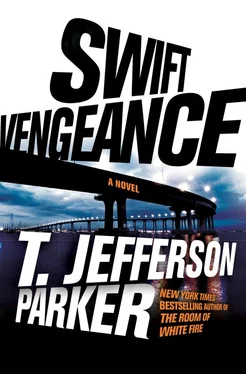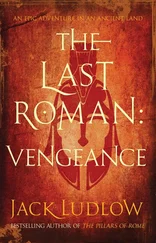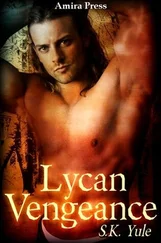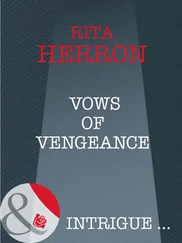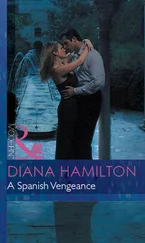“Horse liniment.”
“I thought of Rasha Samara’s Arabians, like you are right now,” she said. “But no DMSO on his thank-you note or envelope. DMSO is also a remedy for aching humans, and you can get it at any feed and tack store. The trace particles left on the paper were clear. And don’t forget, our documents section could not establish that Samara wrote the threat to Lindsey. Based on comparison with a perfect handwriting sample — his thank-you note. To which he signed his own name.”
The cruise-ship terminal was coming up on our right. I could see the impressive Emerald Empress at dock, the gangplanks being moved into place. The cloud blanket had not visibly moved in the heavy pre-storm stillness.
Taucher turned to look at me, then slowed her pace. “Now, the calligraphy pen used to write the letters was likely the same instrument. Note I said pen, not marker. Our writer is a fascinating combination of artist and amateur. His instruments could be considered professional grade, but his execution is fair at best. Self-taught, probably. With a how-to calligraphy book and a good sample of Arabic writing to work from, most people could do what Caliphornia did.”
“Maybe he is Arabic.”
“Back to Rasha? Maybe. But Rasha Samara is native-born and Caliphornia’s phrasing sounds slightly foreign. I want to decapitate you with my knife... to cause you death. The Bakersfield threat was less stilted but stuffed with Islamic references. The writer used a one-millimeter stainless steel nib, with minute flaws that both our stereomicroscope and spectral comparator picked up. The tip is iridium. The lab thinks the nib used on both threats was a Brause Hatat, which the Brause catalog recommends for Hebrew and Arabic writing. More comparison testing to come, but the same flaws showed up on both documents. They’re like tool marks on bullets or cartridge casings. Same writer, same pen. Same ink, also — an acrylic shellac suspending the pigments and dyes. The ink is animal-free, which means likely a high-end maker.”
We continued down the boardwalk. Joggers and walkers and a few moms with strollers. “Why are you telling me this, Joan?”
Which brought us to a stop. And got me a flat stare.
“I’m helping you, dumbass.”
“Why?”
“I respect what you’re trying to do for Lindsey Rakes,” she said. “I respect your loyalty to her. She told me you’re not charging her for protection, investigation, anything related to this.”
I thought of Jason Bayless’s charges against my loyalty, and was momentarily glad to have a differing opinion from Taucher. Deep loyalty has two very sharp edges. In truth, when I resigned from the Sheriff’s Department, I questioned my loyalty, too. It was always Us against Them. And I’d willingly ditched the Us. So what did that say about me?
“More important, Ford — I’ll help anyone who can help me cancel Caliphornia’s ticket here in my Golden State. You are my citizen and I need your help. That terrorist son of a bitch is cutting off American heads on my watch, and I can’t even build a decent suspect profile. He’s out there, and he’s ten steps ahead of us. And, as my father liked to say, that frosts my balls .”
I looked down at Taucher as she regarded the ships on the water. In the cloudy coastal light, her heavily made-up eyes were raptorlike. Light brown in the iris, and unblinking. Startlingly clear. I wondered if she dreamed only of work and of terror and how to banish it from her city. Though I knew that wasn’t likely, I couldn’t guess or even convincingly imagine what she might dream about, other than that. I didn’t care exactly, but for some reason I wanted to know.
She was right about not having enough knowledge of Caliphornia to effectively cast even the widest of nets.
“You know I’m in,” I said.
She nodded.
“Did Bakersfield PD show you the security video?”
“Indeed they did,” said Taucher. “It’s grainy. Isn’t security video always grainy? From liquor stores to international airports. They haven’t improved the common security video camera in what, thirty years?”
“Why are you torturing me, Joan?”
She actually looked surprised. “Well, male — we saw that much. His race is iffy. Maybe Caucasian, but just as easily a light-skinned Semite, Latin or Arab. Rule out black and Asian. When I said grainy I wasn’t kidding. And the angle is terrible. There are six and a half seconds of recording. Two seconds show him in profile, from the side as he comes into the camera, moving toward the apartments. The last four and a half seconds are of his back. He looks somewhere in his twenties or thirties, six-feet-one or — two, one hundred seventy to two hundred pounds. Dressed like a surfer or a boarder — flannel and loose pants, those big clunky board shoes. And a half-zipped U.S. Air Force hoodie, which is maybe why Kenny Bryce opened his door. The hood was up in the video, hiding his hair and most of his face. A cool-dude walk. Light gait. Well balanced. The video was taken from high up and mostly behind. He’d obviously cased the place and knew where the cameras were. On his way back into the carport, he trotted, hood up and head down. That light gait again, like an athlete. The detectives told me it was the only camera that caught him. No one saw such a man come or go that night. Caliphornia arrived at eleven ten and departed at eleven twenty-six, according to the video time and date stamp.”
I remembered the cameras on the carport. “All the front doors would be off-screen,” I said.
“Yes,” said Taucher. “Unfortunate for us, but a valid privacy issue. Because from the blood, it looks like Caliphornia stabbed Bryce in the heart before he even got past the door. Before Bryce could even fire his gun. Imagine the stones it would take to do that with a porch light shining down on you. And the door open. You’re in plain sight.”
“I’m surprised Kenny Bryce opened his door,” I said. “The peephole worked well enough.”
Taucher nodded. “Here’s where the path forks. If you take the right fork to answer why he opened his door, you get the Air Force hoodie logo. Bryce would immediately register a friendly. I saw all that Air Force stuff in his office. Or maybe Caliphornia flashed a convincing law enforcement ID. Such as the Air Force Office of Special Investigations.”
“What if the ID was genuine?” I asked.
Taucher cut me a sharp look. The idea of American agents becoming murderers or terrorists does not sit well with American agents, even those in agencies who refuse to cooperate or even get out of each other’s way. I’d touched her federal nerve.
“For that matter, maybe Bryce knew Caliphornia,” she said. “Saw him through the peep and swung the door right open.”
I had thought the same, and realized that Lindsey might know him, too.
“He seems to know them,” said Taucher. “He used the word personal with Lindsey. He accused Bryce of causing death — most likely a reference to his war experience. The same with the threat to Voss.”
Consequences and calculations came at me in silence then, as we strode south down the Embarcadero. A cold breeze broke the stillness, blurring the smooth water of the bay. I heard the halyards and lanyards ringing from the yachts.
“And if you take the left fork to answer that question?” I asked. “Why Bryce opened his door to Caliphornia?”
Another unhappy glance. “Someone walked past that security camera thirty seconds ahead of Caliphornia. Headed the same way. A woman. Again — terrible video. Young, judging by her movement and posture. Dressed in layers. Like maybe a sweater and shawl for the cold. Or a full-length overcoat. Carrying something up against her left side. A package? A twelve-pack? A bundle of mail? You can’t tell. She was right at the edge of the picture. Four seconds and gone. The manager didn’t recognize her. Neighbors didn’t, either. Was she with Caliphornia? We don’t know. Did she knock on Bryce’s door? We don’t know. We can’t even say where she went once she passed out of the camera’s field of view.”
Читать дальше
